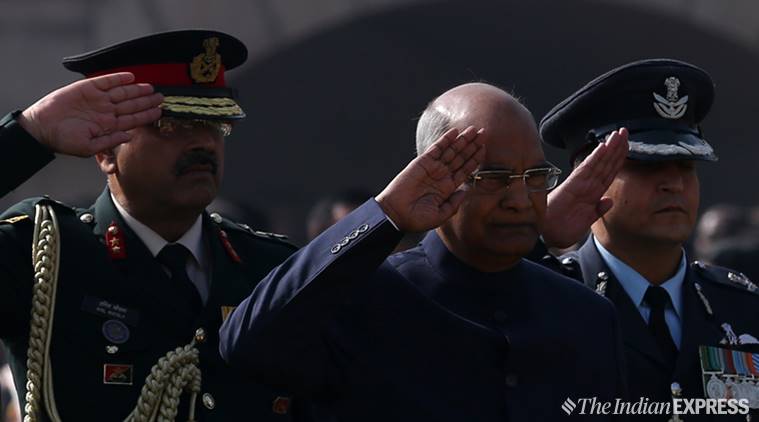Stay updated with the latest - Click here to follow us on Instagram
President’s bodyguards: Govt defends recruitment process, says its based on ‘functional requirements’
Justifying the decision to restrict the recruitment to Jat Sikhs, Jats and Rajputs, the government has said the Army has “performed exceedingly well while maintaining the class composition in recruitment of presidential bodyguards".
 President’s bodyguards can only be from three “classes” — Jat Sikhs, Jats and Rajputs. (Express Photo by Amit Mehra)
President’s bodyguards can only be from three “classes” — Jat Sikhs, Jats and Rajputs. (Express Photo by Amit Mehra)
THE UNION government in reply to a petition challenging the caste-based recruitment of President’s Bodyguards has submitted in the Punjab and Haryana High Court that the criteria restricting it to only three “classes” — Jat Sikhs, Jats and Rajputs, is purely based on “functional requirements”.
Stating that the recruitment is carried out as per the guidelines issued by Recruitment Directorate, Integrated Headquarters of Ministry of Defence, the government in the reply has asserted that the recruitment is done as “per class composition” and “not by the caste composition of the regiment”. While asserting that the Army does not recognise factors like caste, religion and region, the government, however, has not made clear what it means by “class composition” in the recruitment rules. “The allocation of arm/service/regiment is based on internal organisational structure on lessons of collective experience acquired,” reads the reply.
Justifying the decision to restrict the recruitment to Jat Sikhs, Jats and Rajputs, the government has said the Indian Army has “performed exceedingly well while maintaining the class composition in recruitment of presidential bodyguards and changing to All India class composition will not only affect the functioning of the PBG Presidential but will also affect the seniority structure of the regiment”.
The reply adds that the “ceremonial unit” comprising 150 troops is only tasked to perform ceremonies as per the protocol at Rashtrapati Bhawan.
“The ceremonial duties demand common height, built, appearance and dress for reason of pomp and projection which are important military attributes while performing such duties,” the reply reads. It was filed by the government in response to the plea filed by an 18-year-old Gurgaon youth Manish Dayma through his counsel advocate Himanshu Raj for quashing of the recruitment process held in September 2017. President’s Body Guard are a corps under the Army Rules, 1954.
In his plea, Dayma said that he belongs to Gujjar community, has about 6 feet height, has scored around 46 per cent in Class 10 examination and 56 per cent in Class 12 examination but his fundamental right to “equal treatment in so far as his right to be recruited to a public office” has been violated. His job application had been returned earlier by the officials saying he does not belong to the castes mentioned in the advertisement notice. He said that it was high time to stop “such medieval tribalism and colonial practice of rewarding some particular caste in the recruitment of service”.
The government reply argues that though recruitment across all the regiments is adequately spread out to ensure intake of all communities but “after selection, personnel are grouped based on functional requirements to have optimum operation effectiveness”.
“Indian Army has grouped segments of the population into reasonable classification for effective operational handling and administration. In other words, a demographic segment of the population has been grouped together for the purpose of recruitment into some units based on operational needs,” the reply states in response to the allegation that Presidential Bodyguards being appointed on caste basis, adding the recruitment of soldiers in Army is essentially a matter of public policy “which is accomplished keeping in mind the best interest of safety and security of the country”.
The government further has said that Article 33 of the Constitution empowers Parliament to restrict or abrogate the application of fundamental rights in relation of armed forces, adding the Army Act recognises that all citizens are eligible for enrolment in the regular Army but “subject to the ineligibility imposed by the statute itself”.
Stating that the “best available person” in the country as per aptitude has to be fielded for a particular task, the government has further stated that “our political adversaries” have structured their forces on a similar pattern. “The equitable distribution of employment opportunities with the ambit of operational dictates are the basis of composition and structuring of the Army. The criteria has to be mission and adversary oriented,” the reply reads.







